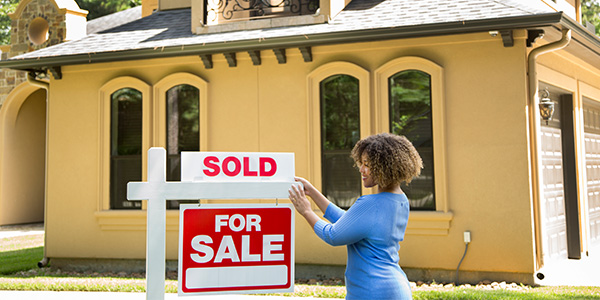Homeowners
For Sale by Owner: Pricing and Negotiation
June 19, 2017
The hardest part of selling a home, whether you do it yourself (FSBO) or use a Real Estate Agent, is putting a price on your property. Pricing a property too low or too high might keep you from getting all you can for your home or lead potential buyers to not consider your listing.
Valuing one's things more highly than other people do is called the endowment effect and it's a natural inclination. However, if you keep a few things in mind it's entirely possible to arrive at a price that works for both the seller and the buyer.
Getting the Listing Price Right
Counteracting the endowment effect is a key benefit of working with a Real Estate Agent. However, their objectivity comes from knowledge you can obtain for yourself. It starts with looking at what homes are selling for in your area. Also, attend open houses for properties currently on the market to see how yours stacks up. Then, to help you get into a buyer's frame of mind, ask yourself what you would pay for your house today if you did not already own it.
You may also want to consider paying for an appraisal. The buyer's bank will eventually insist they obtain one during the closing process. However, having your own done helps you value your property and lets you know what the bank's mortgage limit on your home would likely be.
Negotiating Tips
Once you receive an offer, what you do next will ultimately determine your selling price. Here are some best practices to keep in mind when negotiating with potential buyers.
1. The first offer could be the best
Typically, the first offer is a good assessment of your market value. However, some buyers will start very low hoping you are in a hurry to sell. When an offer is too low, you have the option of not countering, but instead asking them to resubmit.
2. Consider conceding before countering
Often, offers come with concessions, like a request for a delayed closing, for instance. When an offering price is close to your listing price, you may want to accept a concession instead of immediately lowering your price.
3. Be a listener, not a talker
The less buyers know about your circumstances and reasons for selling, the better. Additionally, the more you know about the buyer's circumstances, the more leverage you have in a negotiation.
4. Know your limits
Before you list, determine your minimum sales price. Then, ask yourself how long you are willing and can afford to have your home on the market. You may come out money ahead by selling at a lower price due to your carrying costs, especially if you have already moved.
5. Know your facts
Create a history of upgrades you've made since you bought the home, the age of the appliances, and how much it would cost to replace them. You may want to consider offering a home warranty to counteract any reluctance on a buyer's part. This relatively inexpensive insurance covers repair costs should something break down within the first year of you selling the home.
6. Follow the money
Understand the lending conditions your buyer is working with. That can help you determine whether you want to agree to a lower price to help them qualify for their mortgage in exchange for a larger participation from them in the closing costs, for example.
Successfully selling your home on your own may require a little more upfront research, but when you know what to negotiate, it should lead you to the results you originally sought from choosing an FSBO solution, a larger check at closing.





 Smart Moves Start Here.
Smart Moves Start Here.